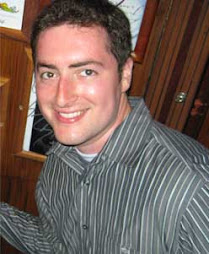Granted, he was fired because of his team's inexplicable collapse to end this past season. The Broncos held a three game lead over the once left for dead Chargers. While San Diego surged to the finish line, the Broncos lost each of their final three games. That included a 52-21 drubbing in San Diego in season's final regular season game.
Yet Shanahan was a great coach during his fourteen year tenure in the Mile High City. He won two Super Bowls with John Elway. He was called a mastermind for his amazing running offense that could allow seemingly any running back to rush for one thousand yards.
But couple his coaching responsibilities with all player personnel moves, and he becomes much more ordinary. While there still is promise on the offensive side of the football (i.e. Jay Cutler, Brandon Marshall, Eddie Royal), the Broncos defense was abysmal. Denver allowed an average of 28 points per game, which ranked 30th in the NFL, and 29th in yards allowed, giving up a dismal 374.6 each week.
And, just look at that defense. The personnel Shanahan is running out there couldn't be much worse. What happened to the signature Broncos defense of a few years ago which featured skilled and speedy linebackers, a ferocious interior line and outstanding cornerbacks that dictated the passing game of their opponents? It seems that the mastermind ignored that side of the ball, and it cost him his job in the end.
Not to mention the fact that his once vaunted running game, often considered the NFL's gold standard over the time Shanahan has coached in Denver, had Peyton Hillis lead it this year with a grand total of 343 yards rushing. (For more on this, check out Scott's post on Shanahan's firing here.)
Shanahan was spread too thin, like many of the great football minds before him who have taken on too many football responsibilities with one team. Despite his genius on the field, he couldn't translate that intelligence off of it, because it's nearly impossible for these men to juggle two extraordinarily exhausting jobs effectively.
He's not alone. It didn't work out for Mike Holmgren in Seattle. It has been up and down for Andy Reid in Philadelphia, as his team has had successes and disappointments during his tenure in both spots. And don't forget what it has done for his troubled children. Joe Gibbs was a phenomenal coach for the Redskins, who won three Super Bowls with three different quarterbacks under his tutelage in the 80s and early 90s. But when he took over the Redskins from 2004-2007, he was a pedestrian 30-34 over those four years as coach and president of the team. Bill Parcells was once coach and general manager at the same time. But both times he won the Super Bowl with the Giants, George Young was his GM.
It's just too much work. NFL coaches spend 365 days a year working towards a successful season. How can anyone expect them to be good general managers at the same time? Those around football know how many hours these coaches spend watching film, scheming game plans and coaching players. How can they have time to make every player personnel decision as well?
Usually, they don't. Or at least, they don't have enough time to do it well. That's why coaches should stick to coaching. Let general managers be general managers.


No comments:
Post a Comment